
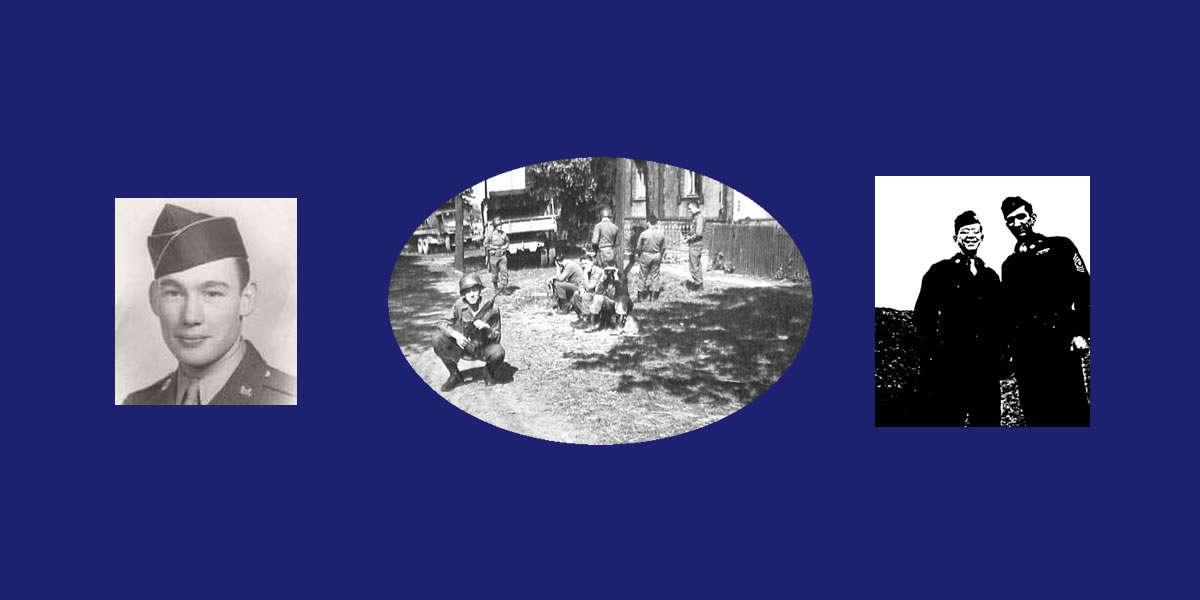
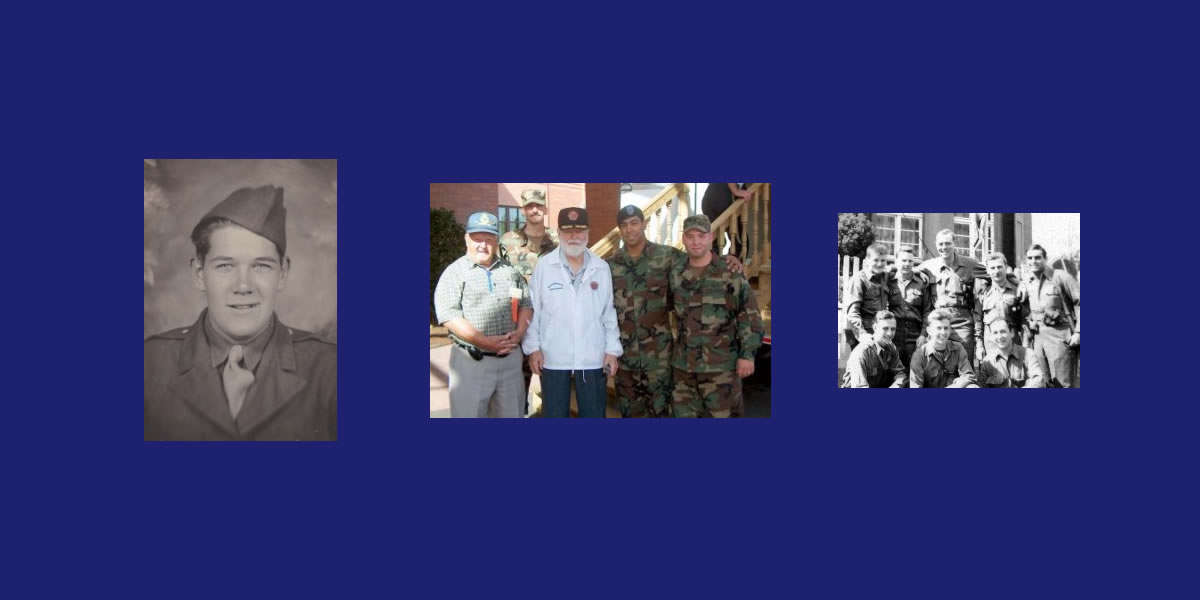
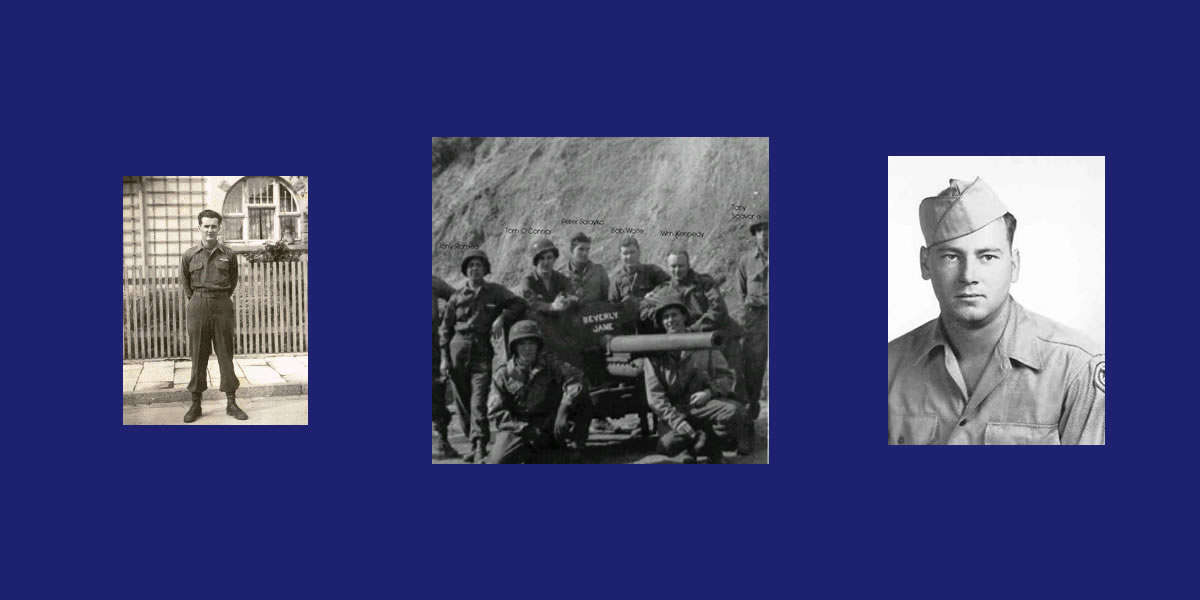
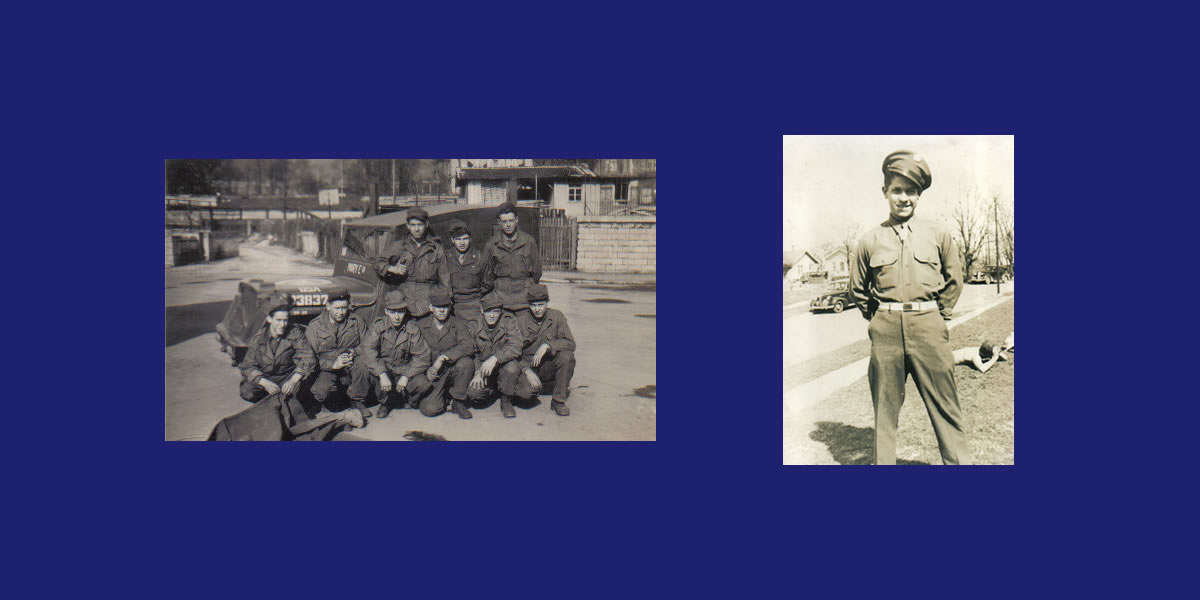
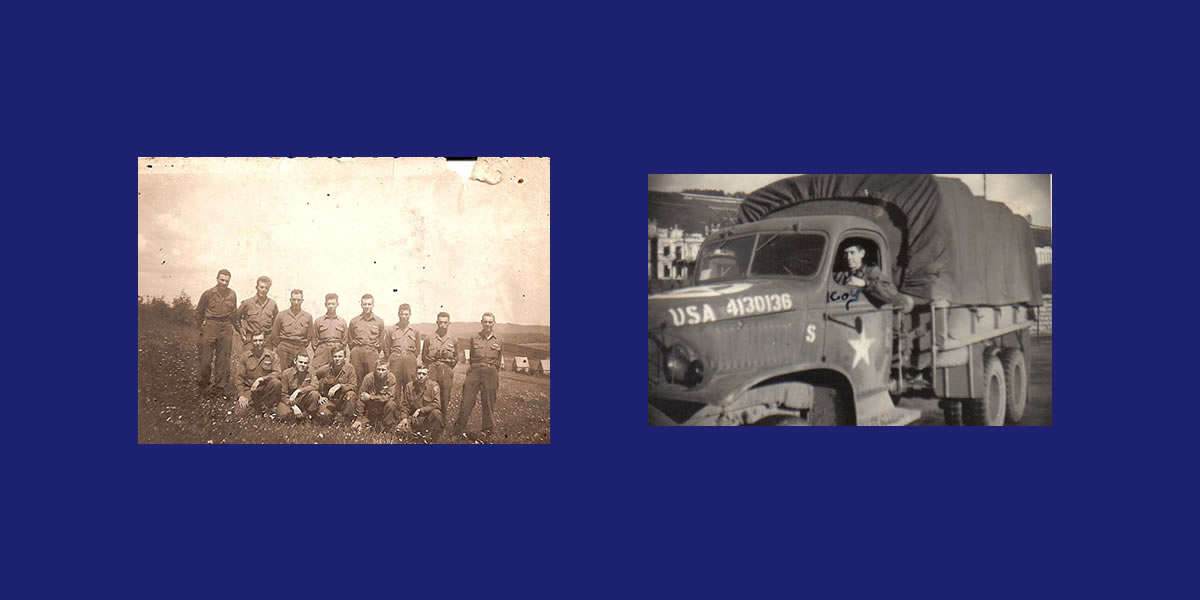
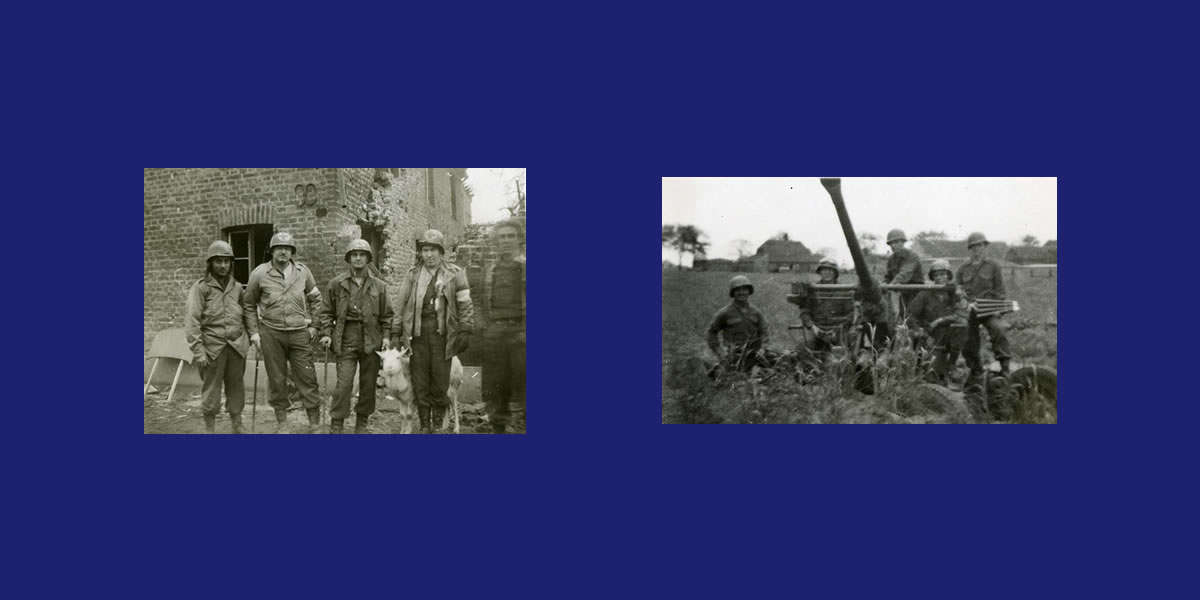
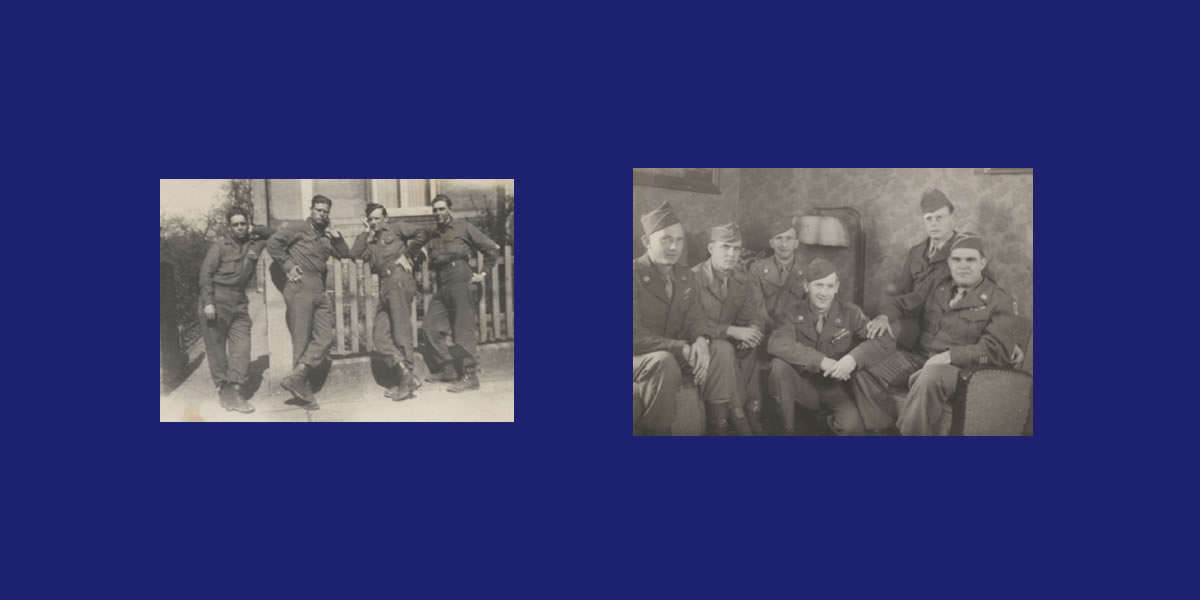

Ozarks History
The 102nd Infantry Division arrived at Cherbourg, France, 23 September 1944, and, after a short period of training near Valognes, moved to the German-Netherlands border. On 26 October, elements attached to other divisions entered combat and on 3 November the Division assumed responsibility for the sector from the Wurm River to Waurichen. A realinement of sectors and the return of elements placed the 102d in full control of its units for the first time, 24 November 1944, as it prepared for an attack to the Roer. The attack jumped off, 29 November, and carried the Division to the river through Welz, Flossdorf, and Linnich. After a period of aggressive patrolling along the Roer, 4-19 December, the Division took over the XIII Corps sector from the Wurm River, north of the village of Wurm, to Barmen on the south, and trained for river crossing. On 23 February 1945, the 102d attacked across the Roer, advanced toward Lovenich, bypassed Munchen-Gladbach, took Krefeld, 3 March, and reached the Rhine. During March the Division was on the defensive along the Rhine, its sector extending from Homburg south to Dusseldorf. Crossing the river in April, the Division attacked in the Wesergebirge, meeting stiff opposition. Wilsede and Hessisch-Oldendorf fell, 12 April 1945, and the 102d pushed on to the Elbe, meeting little resistance. Breitenfeld fell, 15 April, and the Division outposted the Elbe River, 48 miles from Berlin, its advance halted on orders. It patrolled and maintained defensive positions until the end of hostilities in Europe, then moved to Gotha for occupational duty.
Deactivation

Reactivation

Taps

Military Research
In Memoriam
Margraten Wreath Photos
Paul Rentz has a Flickr site to share photos from the 102nd
Please pass along this information to anyone that has photos to share from the group
The site is in honor of his father, Clifford Rentz, who passed away November 7, 2008
Before You Go
Dr. Sam Bierstock, 58, and John Melnick, 54, of Pompano Beach have written a song: the mournful “Before You Go” does more than salute those who fought in WWII. It encourages people to go out of their way to thank the aging warriors before they die. “If we had lost that particular war, our whole way of life would have been shot,” says Bierstock, who plays harmonica. “Every ethnic minority would be dead. And the soldiers are now dying at the rate of about 2,000 every day. I thought we needed to thank them.” The song is striking a chord. Within four days of Bierstock placing it on the Web, the song and accompanying photo essay have bounced around nine countries, producing tears and heartfelt thanks from veterans, their sons and daughters and grandchildren. Bierstock and Melnick thought about shipping it off to a professional singer, but because time was running out for so many veterans, they decided it was best to release it quickly, for free, on the Web. They hope every veteran in America gets a chance to hear it.

